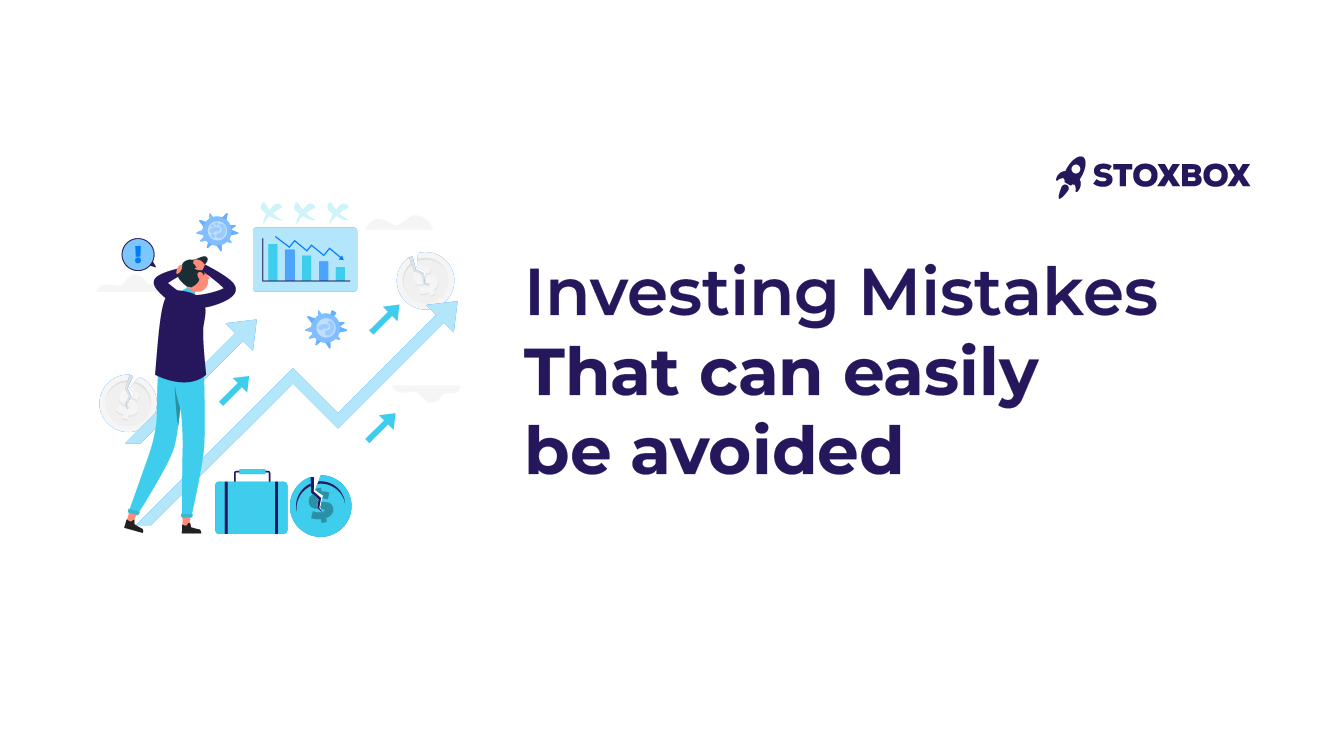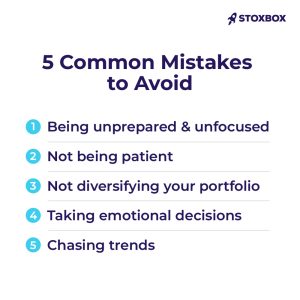Are you keen on beginning your investment journey and worried about making mistakes? It is a well-known adage that people should learn from their mistakes but, in the investing arena, we can also learn from other people’s mistakes and ensure that we avoid them without stressing out too much. Investing always involves some amount of risk but knowing what factors and aspects to avoid can help us invest in a manner which mitigates risk considerably and puts us on the path to generating and accumulating wealth over the longer term.
What are the 5 common mistakes to avoid?
Here is a list of the most common mistakes in investing and how to avoid them while creating a portfolio you can be proud of.
Being unprepared and unfocused: Even if you begin investing with a small SIP, and trust your fund manager to make the difficult investment decisions, you need to know and understand various aspects such as your investment goals, your time horizon, your risk appetite, and what kind of funds you want to invest in. If these aspects are not clear at the outset, you will find it difficult to invest optimally.
Not being patient: Some of us look for sudden and major returns from our investments but, before investing, we should understand that this is a long-term commitment and we have to stay patient and committed to receive robust returns. If you withdraw your money at the first sign of distress, you will only end up denting your wealth and investment journey.
Not diversifying your portfolio: We have all heard the saying – do not put all your eggs in one basket. The same applies to investments. If you fancy one sector and park all your money in just one fund type, you face higher risk of losing wealth in case of a market fall. Instead, if you diversify your corpus across various categories, you will be able to withstand market volatility in a better and more sustainable manner.
Taking emotional decisions: Almost all treatises about money prohibit investors from making one cardinal mistake – letting your emotions override logic. Money is an extremely emotional topic for most of us, and, invariably, we end up taking emotional decisions which stand us in poor stead. Resort to calculations and logic when taking money decisions and take emotion out of the equation for best results.
Chasing trends: The market is ruled by a variety of trends and cycles but chasing these trends blindly and investing without understanding and analysing can force you to lose your hard-earned money. Instead of chasing trends, invest for the long term and look for sustainable growth.
Now that you know which beginner and rookie mistakes you should avoid, you are adequately prepared to embark on your investing journey. Do not let the market scare you but also do not take it lightly. Study and analyse the market and know your biases and goals before taking decisions. Remember, investment is like a long-term relationship and you will have to wait before you can enjoy the fruits of your labour.
Frequently Asked Questions
How does ignoring the time horizon affect investment outcomes?
Ignoring the time horizon can lead to investing in assets that don’t align with your financial goals, such as choosing short-term investments for long-term needs, which may not yield adequate returns.
Why is it risky to rely solely on past performance when selecting investments?
Past performance doesn’t guarantee future results. Market conditions and economic factors change, so relying only on historical data can result in poor investment choices.
How does investing without considering inflation impact returns?
Neglecting inflation reduces the real value of returns over time. Investments that don’t outpace inflation can lead to a loss in purchasing power.
Why is failing to understand the fees or charges of an investment a critical mistake?
Hidden fees, management charges, or transaction costs can erode your returns. It’s essential to review the cost structure of any investment product before committing.
How can following unverified investment advice harm your portfolio?
Acting on tips from unreliable sources or unverified advice can expose your investments to unnecessary risks and lead to potential losses. That is why rely on SEBI registered investment advisors like StoxBox, where you get institution grade research recommendations.
What happens when you chase high returns without assessing risk?
Chasing high returns often involves taking on higher risk, which can lead to significant losses if the investment doesn’t perform as expected.
Why is failing to set realistic expectations dangerous for investors?
Unrealistic expectations can lead to disappointment and hasty decisions when investments don’t meet expected returns. It’s crucial to understand market realities and align goals accordingly.
Why should I avoid putting all my money into one asset class?
Investing solely in one asset class increases your exposure to market-specific risks. A well-diversified portfolio across asset classes like equities, bonds, and real estate helps reduce risk and improve stability.
You might also Like.
Double Top Pattern: The Ultimate Trading Guide
Have you ever witnessed a promising uptrend reverse on you...




